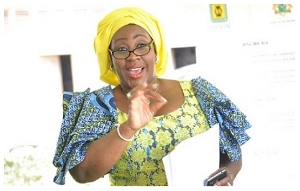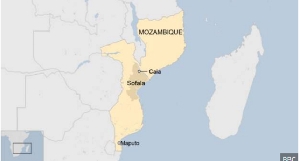Opinions of Saturday, 30 May 2009
Columnist: Quarshie, Leonard
Insider, Outsider: A meditation on life in America
Life can be unkind here, sometimes. So it is everywhere else in the world, you may say. But in America, it is especially. We come here, compared to other places, dreaming of possibility. “Give me your tired, your poor, Your huddled masses…,” the Statute of Liberty, beckons. Then we face reality.
A double dose awaits the African here. Ours is perhaps the most educated immigrant group here. We come with B.A.’s and M.A.’s. We come clear-eyed; neither naïve or misty-eyed about this place. It is not for sentiments sake, we come. We do not come to admire the skyscrapers of Manhattan or because we think America is heaven.
There is a reason, we come. Sometimes, we come because we are forced by circumstances, economic or otherwise. At other times, we come because we are escaping political repression and persecution. We come with knowledge of America’s history; the disparities between the races; the soft, subtle racism; and the glaring inequality. But we come, regardless, dreaming of a better life; lured by the mystique that is America, disenchanted by the seeming hopelessness of the continent we call home.
Our Black American brothers and sisters look at us quizzically, intrigued by our desire to succeed at all cost; offended at our willingness to ignore the slights of White America. Irritated by our nonchalance and apathy towards their struggle, they become angry at us and blame our forefathers for selling them into slavery. Slow your roll, bro, they warn us. “We have been here for 400 years!” But we brush them aside. Call them names. Criticize them, sometimes with reason; sometimes irrationally. Lazy fools! Don’t want to work… Don’t want to be responsible… Don’t want to go to school…
Then our enthusiasm meets jarring reality. As we climb up in the work place and compete with Whites, we become suddenly aware of our “otherness.” Our accents. Our differentness. Going through hell and high water to get the almighty green card and citizenship, we quickly discover that our citizenship is an oddity. On government forms, there is not a category for us. In the mind of the authorities, we do not exist. Polite society doesn’t know what to make of us. We discover we are like an unwanted cousin; a minority among minorities.
It hurts but we cannot leave. We are here now. We have obligations. Our children are here. The money we send home meets critical needs. It pays school fees; it puts food on the table; it pays hospital bills. We can’t just get up and leave. That green card; that passport helps a lot. It saves us a hell of trouble. It saves us from the hassle of operating in the shadows of society.
So we turn inward. We start investing furiously at home; start building something; start owning some property. We start following the politics; we start contributing at home. We form ethnic and national associations. We do charity work; we start sending critically needed supplies home. But, we are not happy. “Why can’t society accept us the way we are?” we ask.
“Who are you?” they ask, ever so subtly. “An African-American?” “An American-African?” “Where do you come from again?” they ask after we have lived for 40 years.
Leonard Quarshie is a student at the University of Maryland, University College.
leoghana@gmail.com












